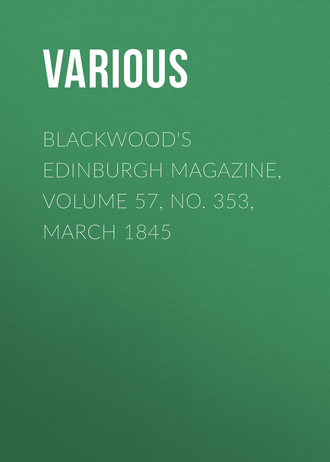Blackwood's Edinburgh Magazine, Volume 57, No. 353, March 1845
 полная версия
полная версияBlackwood's Edinburgh Magazine, Volume 57, No. 353, March 1845
Жанр: учебная и научная литературакниги о путешествияхзарубежная образовательная литературазнания и навыки
Язык: Английский
Год издания: 2017
Добавлена:
Настройки чтения
Размер шрифта
Высота строк
Поля









